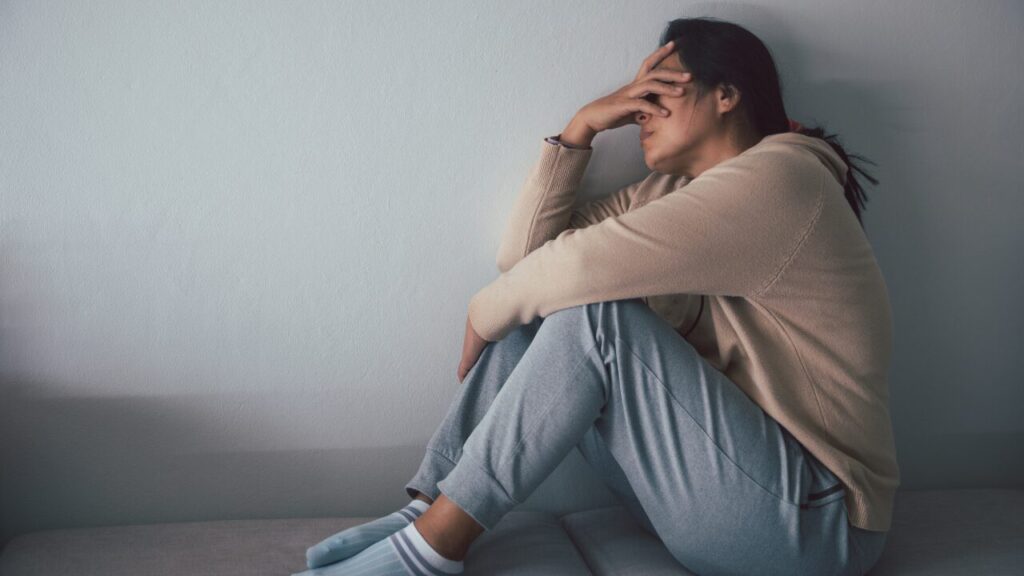Have you ever felt a sudden surge of fear or nervousness that makes your heart race, your breathing quicken, and your body sweat? If so, you may have experienced a panic attack or an anxiety attack. But what are they, and how can you tell them apart?
What is a Panic Attack?
A panic attack is an intense and overwhelming feeling of fear or terror that occurs without any apparent reason or trigger. It usually lasts for a few minutes, but can sometimes last longer. A panic attack can make you feel like you are losing control, going crazy, or dying. Some of the common symptoms of a panic attack include:
- Chest pain or tightness
- Palpitations or rapid heartbeat
- Shortness of breath or hyperventilation
- Trembling or shaking
- Sweating or chills
- Nausea or stomach ache
- Dizziness or lightheadedness
- Numbness or tingling sensations
- Feeling detached from reality or yourself
- Fear of losing control, going crazy, or dying

What is an Anxiety Attack?
An anxiety attack is a term that is often used interchangeably with a panic attack, but they are not exactly the same. An anxiety attack is a prolonged and persistent feeling of worry or nervousness that is triggered by a specific situation or stressor. It usually lasts for hours or days and can interfere with your daily functioning. An anxiety attack can make you feel restless, irritable, or on edge. Some of the common symptoms of an anxiety attack include:
- Excessive worry or fear
- Difficulty concentrating or sleeping
- Muscle tension or pain
- Headache or fatigue
- Irritability or mood swings
- Restlessness or agitation
- Avoidance of the situation or stressor

How to tell the difference between a panic attack and an anxiety attack?
The main difference between a panic attack and an anxiety attack is the intensity, duration, and trigger of the symptoms. A panic attack is more severe, shorter, and unpredictable, while an anxiety attack is less intense, longer, and predictable. Here are some questions that can help you distinguish between the two:
- How sudden and intense are your symptoms?
- How long do your symptoms last?
- What triggers your symptoms?
- How often do you experience your symptoms?
- How much do your symptoms affect your daily life?
If your symptoms are sudden, intense, short, and occur without any obvious reason or trigger, you may have a panic attack. If your symptoms are prolonged, persistent, mild to moderate, and occur due to a specific situation or stressor, you may have an anxiety attack.
How to cope with a panic attack or an anxiety attack?
Both panic attacks and anxiety attacks can be very distressing and debilitating, but some strategies can help you cope with them. Here are some tips that you can try:
- Breathe deeply and slowly. Breathing exercises can help you calm your nervous system and reduce your physical symptoms. Try to inhale through your nose and exhale through your mouth, making your exhale longer than your inhale. You can also count your breaths or follow a guided breathing app or video.
- Challenge your negative thoughts. Cognitive behavioral therapy (CBT) can help you identify and change your irrational or distorted thoughts that fuel your fear or worry. For example, if you think that you are having a heart attack or going crazy, you can challenge those thoughts by asking yourself questions like: “What is the evidence for or against this thought?”, “How likely is this to happen?”, “What is the worst that can happen, and how can I cope with it?”.
- Seek professional help. If your panic attacks or anxiety attacks are frequent, severe, or interfere with your daily life, you may benefit from seeing a therapist or a doctor. They can help you diagnose your condition, provide you with psychotherapy or medication, and refer you to other resources or support groups.
- Practice self-care. Taking care of your physical and mental health can help you prevent or reduce your panic attacks or anxiety attacks. Some of the self-care practices that you can adopt include: eating a balanced diet, exercising regularly, getting enough sleep, avoiding caffeine, alcohol, and drugs, managing your stress, relaxing your body and mind, and engaging in enjoyable activities.
Frequently Asked Questions
Here are some of the common questions that people have about panic attacks and anxiety attacks:
Panic attacks and anxiety attacks are not life-threatening, but they can be very frightening and uncomfortable. They can also affect your quality of life and increase your risk of developing other mental health problems, such as depression, phobias, or post-traumatic stress disorder (PTSD). Therefore, it is important to seek professional help if you experience frequent or severe panic attacks or anxiety attacks.
Panic attacks and anxiety attacks can be treated effectively with psychotherapy, medication, or a combination of both. The most common and effective form of psychotherapy for panic attacks and anxiety attacks is CBT, which teaches you how to cope with your symptoms, challenge your negative thoughts, and face your fears. The most common and effective types of medication for panic attacks and anxiety attacks are antidepressants and anti-anxiety drugs, which can help you reduce your symptoms and prevent future episodes. However, medication should not be used as a sole treatment and should be prescribed and monitored by a doctor.
If you encounter someone who is having a panic attack or an anxiety attack, you can help them by following these steps:
1. Stay calm and supportive Do not panic, judge, or dismiss their feelings. Let them know that you are there for them and that they are not alone.
2. Help them breathe Encourage them to breathe deeply and slowly, and guide them with your breathing or a breathing app or video. You can also ask them to hold your hand or hug you if they are comfortable with physical contact.
3. Help them distract Help them focus on something else other than their symptoms, such as a pleasant memory, a funny joke, or a simple task. You can also ask them to repeat a positive mantra or affirmation, such as “I am safe”, “This will pass”, or “I can handle this”.
4. Help them seek help If their symptoms do not subside or worsen, or if they have any medical concerns, you can help them contact a therapist, a doctor, or a crisis hotline. You can also offer to accompany them or follow up with them later.
Note:
So in This Post, We Tell You About Panic Attacks vs. Anxiety Attacks What points do you think have experienced? Let me know in the comments.
If you found this helpful feel free to share your experience if you can relate to these points and if you are comfortable to share
For More Articles Related to Anxiety Stay Tuned To our Site












